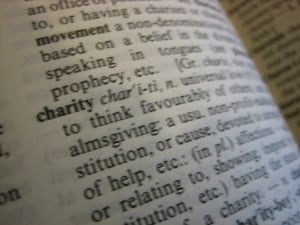

We’re just waiting on the final rules that will allow some couples to pass up to £1m to their children free of inheritance tax (IHT). The rules look set to be so riddled with caveats that they erode the benefit of this improvement; if you live in Caterham and the surrounding area it’s not uncommon that you’ll breach the £2m threshold where the preferential terms are removed, for example. I cannot see the new rules will keep pace with real asset price inflation anyway.
Recent figures from HMRC suggest that a now established reduction to the normal rate of IHT, from 40% to 36% is barely being used with over 90% of taxable estates electing to pay the higher rate of 40%. I say electing as it is (relatively) simple to arrange your affairs, in conjunction with a competent Estate Planning solicitor, to pay the reduced rate.
An estate pays Inheritance Tax at the rate of 36% on taxable assets (instead of 40%) if 10% or more of the ‘net value’ of the estate is left to charity.
The net value of an estate is the total value of all the assets after deducting:
- debts and liabilities
- reliefs
- exemptions, e.g. anything left to a husband, wife or civil partner
- anything below the Inheritance Tax threshold of £325,000 (known as the ‘nil rate band’)
IHT is not due on any gifts given to charities, and some other similar bodies. To understand whether a charity qualifies for the 10% required for the reduction in relevant tax you should verify they have an HMRC charity reference number (and continue to do so as this can change with time, of course).
HMRC have a reduced rate calculator which can be useful to see how it might work for you, but simply if you intend to gift 4-10% of your net estate to charity you should probably increase the gift to 10% to increase the post-tax sum left to your heirs.
If you have not currently planned to make gifts to charity, making the choice to gift 10% will mean less is available to the beneficiaries of your estate but the total gross value is increased once the charitable gift is added back in – effectively subsidised by the Treasury!
We have experience in Trust and Estate Planning as well as advising on the establishment and ongoing management of private charities. If the above is of interest to you we can bear the cost of an initial exploratory telephone conversation.





